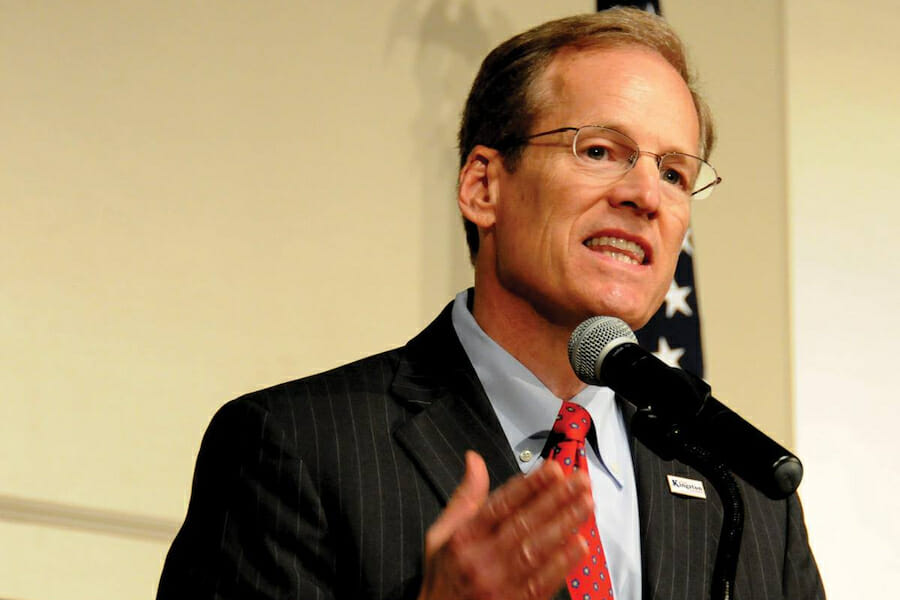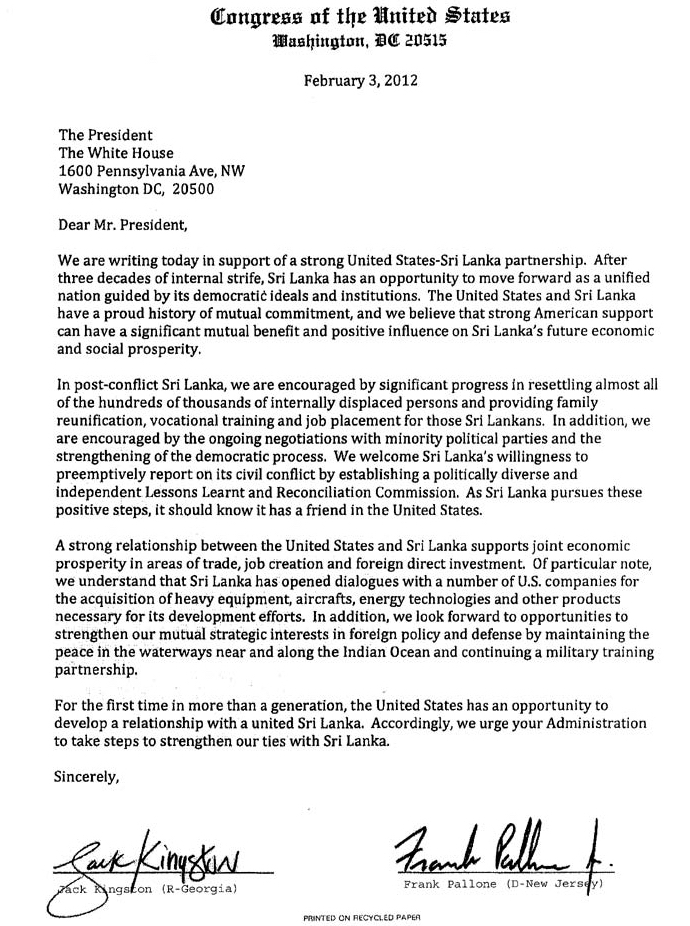
Rep. Jack Kingston is an Apologist for Sri Lanka
U.S. Representative Jack Kingston (R-GA) recently submitted a bipartisan letter to President Barack Obama. Cosigned by eleven other members of Congress, it effusively praises the Sri Lankan government for all of its accomplishments since end of the country’s twenty-six-year civil war.
The short note is heavy on rhetoric and light on reality. It talks about the enormous potential for a strengthening of US-Sri Lankan relations, going on to use words like “post-conflict,” while congratulating Rajapaksa’s semi-authoritarian regime for doing such a good job of resettling IDPs, among other misperceptions. Perhaps the most absurd part of the letter is the following: “In addition, we are encouraged by the ongoing negotiations with minority political parties and the strengthening of the democratic process. We welcome Sri Lanka’s willingness to preemptively report on its civil conflict by establishing a politically diverse and independent Lessons Learnt and Reconciliation Commission. As Sri Lanka pursues these positive steps, it should know it has a friend in the United States.”
I seriously doubt Congressman Kingston (or any of his colleagues) is conversant in Sri Lankan politics. If he were, he would know that “ongoing negotiations” with minority parties are not really happening. Are the Congressmen even aware of the composition of the LLRC? Or how deeply flawed both the commission itself and the overall process were?
More importantly, they would know that Sri Lanka has obviously become less democratic over the past few years. Simply put, this misguided letter is in defense of free trade, stronger economic ties, jobs and Foreign Direct Investment (FDI). Most discouragingly, Mr. Kingston actually travelled to Sri Lanka last fall. Doesn’t the Congressman know that there a far fewer military personnel on the streets when foreign diplomats are visiting? Do the Congressman and his colleagues really think Sri Lanka is smoothly moving towards genuine national reconciliation? That seems unlikely.
Sri Lanka was recently ranked 163 (out of 179) on the 2011-2012 Press Freedom Index, published by the widely respected Reporters Without Borders. When it comes to media freedom, Sri Lanka is behind Saudi Arabia and only four spots ahead of Cuba. This is not what democracy looks like. Sri Lanka is better described as a pseudo-democracy still brimming with ethnic tension nearly three years after the civil war. Yet this group of legislators seems to measure Sri Lanka’s democratic credentials based almost exclusively on the fact that the country holds regular elections.

The case for an international investigation into what transpired during the final phase of the conflict is as clear as it is convincing. Widespread violations of international human rights and international human law were committed by both government forces and the Liberation Tigers of Tamil Eelam (LTTE). Unfortunately, President Rajapaksa is hostile to even a cursory glance at what transpired during the final phase of the conflict. Most importantly, Sri Lanka’s perennial lack of accountability for past human rights violations have done nothing but encourage further abuses.
As The Economist and other publications have recently noted, disappearances, militarization, media freedom, sexual violence, land issues, corruption and impunity are all significant challenges. With the 19th session of the UN’s Human Rights Council coming imminently, Sri Lanka is coming under fire for good reason. The Rajapaksa administration still shows no real interest in a political solution or even touching the recommendations of its own LLRC report.
Foreign policy, post-war Sri Lanka and international human rights norms are not particularly hot topics in Georgia, or anywhere else in the US. That is understandable, but that does not mean that shameless acts of hollow diplomacy should be tolerated. Congressman Kingston, a solid conservative, is unlikely to receive much of a challenge in this November’s election. Nevertheless, this flagrant display of opportunism is reprehensible. Geopolitically, it is true that the US does not want to “lose” Sri Lanka to China.
However, promoting tyranny abroad tends to have consequences which are usually negative for the US at home. Now is not the time for sycophantic gestures and platitudinous remarks on behalf of Washington’s special interests. Of course, whether the Congressman Kingston actually believes what he has recently written is anybody’s guess. But one thing is hard to deny: it is irresponsible, unwise and pathetic for US Congressmen to support a rising autocrat like Mr. Rajapaksa.

